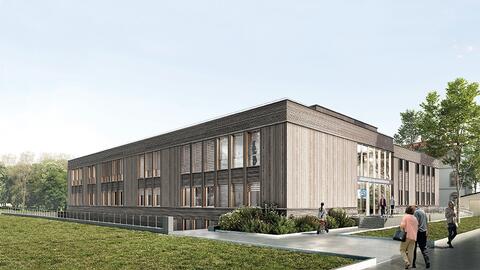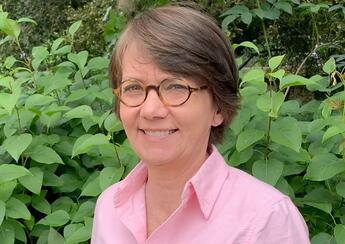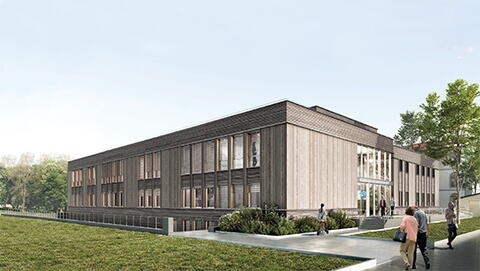
UMS-Autonomie, a unique health ecosystem in France dedicated to people losing their autonomy
Located within the Charles Foix AP-HP hospital in Ivry-sur-Seine, UMS-Autonomie intends to provide researchers and people affected by loss of autonomy with a 1,600m2 space to collectively create and evaluate technological innovations. The objective: to accelerate the provision of tomorrow’s autonomy solutions. Its director, Christine Boutet-Rixe, answers our questions.

What is UMS-Autonomie?
Christine Boutet-Rixe : UMS-Autonomie means housing and temporarily supporting researchers who carry out innovation projects for people losing their autonomy. This large research center, operational from 2025, will house a wide range of technological innovations made available to the users concerned so that they can carry out clinical tests together and establish protocols, while respecting research involving human person.
UMS-Autonomie is the first shared service unit of Sorbonne University and AP-HP (the Paris public hospital system). The idea of this shared structure is to combine the strengths of these two entities. The AP-HP brings its expertise in clinical research as well as AP-HP patient volunteers, while Sorbonne University has a pool of scientists working on technological innovations, interested in clinical investigations in the presence of end users.
What needs does UMS-Autonomie meet?
C.B-R.: The main objective is to improve the quality of life of a patient who is losing their autonomy. But you still need to know how! This is the essence of UMS-Autonomie. The idea for this platform was created five years ago based on the observation that a large part of the technological innovations marketed to improve autonomy were abandoned. These innovations could have been promising, but did not always respond effectively to the concrete problems that patients encounter in their daily lives.
This is what we achieved by carrying out approximately one hundred interviews with people that have additional needs to improve their quality of life in the face of diminishing autonomy or disability situations. With UMS-Autonomie, we wanted to think in the opposite direction: starting from people's concrete difficulties to then imagine, design and test a solution, measuring its effectiveness in the long term and make this solution available as quickly as possible.
How are you placing the patient at the heart of the project ?
C.B-R. : UMS-Autonomie is a site in which we can reconstruct almost any possible scenario of daily life. For example, within the home. People losing their autonomy, caregivers and researchers will be able to meet during the day in a demonstration living unit with living room, kitchen, bedroom and bathroom. In this context, technological innovations can be imagined and tested in these different rooms, depending on the needs and difficulties of people.
Another example is those with respiratory failure who express difficulty carrying heavy oxygen cylinders, particularly when climbing stairs. Thus, the connected staircase, a test bench reserved for experimentation, will make it possible to imagine and test innovations to meet this constraint. Experimenting on this site therefore allows them to reproduce their environment and make these innovations available as quickly as possible. If the results prove conclusive as the research progresses, they will then be used on a daily basis.
The UMS-Autonomie site also offers the possibility of testing innovations externally. A street on which cars circulate is provided for the person to test new solutions in this context.
UMS-Autonomie is an open structure that is becoming a true accelerator and facilitator of technological innovations for researchers in the public and private sector. The platform is open to manufacturers, SMEs and start-ups as long as they have a project to propose requiring the use of AP-HP patients or healthy volunteers.
What financial and human resources do UMS-Autonomie have to launch such a project?
C.B-R.: The creation of the site required major renovation work on a building at the Charles Foix AP-HP hospital. UMS-Autonomie has benefited from regional funding of 6.1 million euros as part of the State-Region plan contract in Île-de-France. Last April, we were also the winner of Sésame Filières - France 2030, financed equally by the State and the Region, for a total of 2 million euros with the aim of creating new partnerships for more effective innovation.
This funding helps us with the installation, but also for equipment dedicated to research projects, while allowing us to increase our multidisciplinary team over the next three years. There are currently four of us and we would like to expand it to around twenty people. Finally, the funding provided by Sorbonne University and the AP-HP allowed us to launch a call for expressions of interest from innovators in order to receive the first projects on the platform during 2025.

